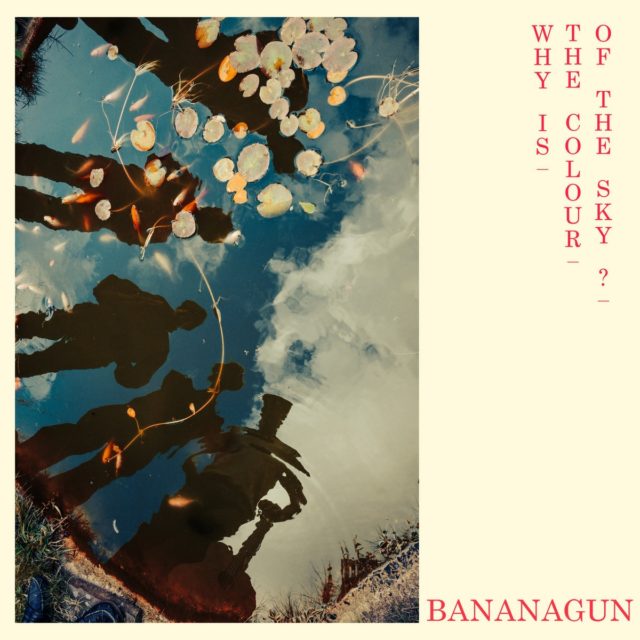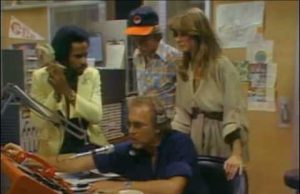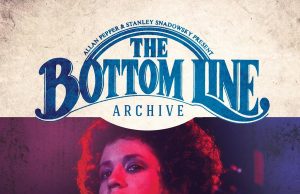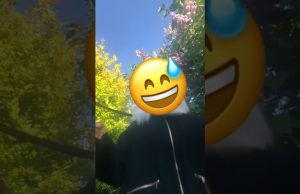THE EDITED PRESS RELEASE: “To say that the four years following the arrival of their debut album had been tumultuous for Bananagun would be an understatement. Released during the height of lockdown in the summer of 2020, the group were forcibly “scattered” following the release of The True Story of Bananagun. Australia’s ultra-strict lockdown rules — declaring it illegal to travel beyond a five-kilometre radius — made it nigh on impossible for the band to get together at all, with the only rehearsals requiring them to sneak past military checkpoints undetected.
Coinciding with this was a great period of personal change for the band’s singer-guitarist, flautist and songwriter Nick van Bakel. “I had a myriad of mountains to be crossed, which was pretty challenging,” he explains. “So I just cocooned into lots of spiritual side quests and soul seeking. Band members were travelling etc., so it was ages before we got through the stop-start stop-start phase and regained some band momentum.”
This climate of upheaval does not go unheard on Why Is The Colour Of The Sky? While it’s by no means a pessimistic work — far from it — it’s an album that departs from the ultra-slick bursts of sunshine-pop and afrobeat that defined True Story… , and muddies the waters with a heavy blend of incendiary jazz and freak-beat experimentation. It’s Bananagun all right, but braver, bolder and more mysterious than ever…
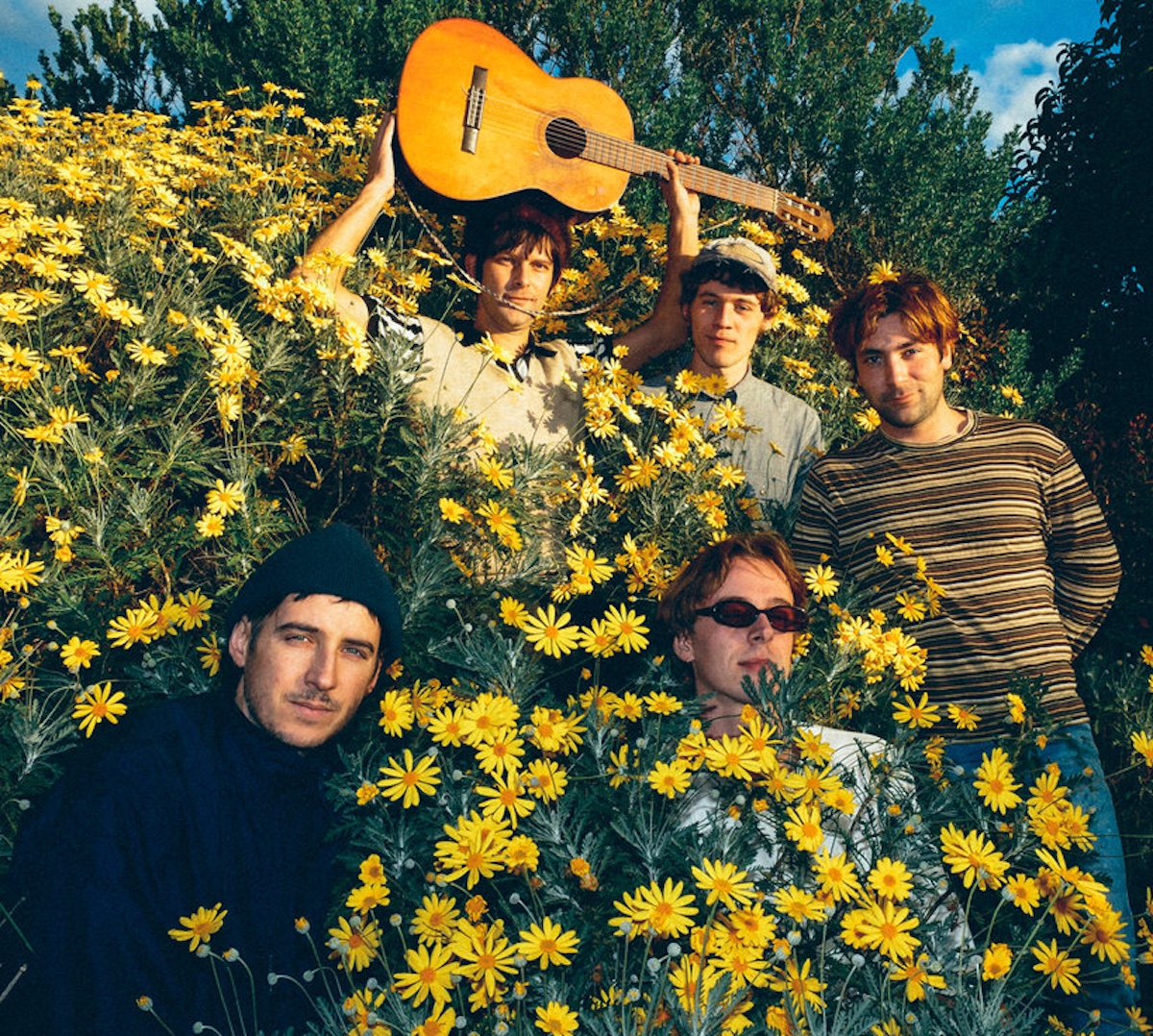
For one, the band’s creative process has been completely overhauled. On True Story… , all the songs and their constituent parts had been plotted individually by van Bakel, dished out among the band members individually, rigorously road-tested live for months, and then brought to the studio more or less fully formed. On Why Is The Colour Of The Sky?, that rigid process was forcibly ripped from its shackles. Songs were jammed out, written, then recorded in batches of two a week across the space of a month. They would learn the song on monday, record on Wednesday; rinse and repeat. So, when the needle drops, and that scorching hot freak-beat bustle of opener, Brave Child of New World whips straight into top gear, what you’re hearing is that lighter-spark moment of a song coming to life for the very first time before the players’ very minds, energised by all the bleeds, blemishes and imperfections of a collective playing, and moving together as one soul.
While those most schooled in the esoterica of the ’60s could list any number of psych-garage obscurities to which Bananagun might be indebted, and while van Bakel at least admits the growing influence of “spiritual jazz” on this record — heard especially on the cosmic voyages of Feeding the Moon or the untamed orchestras of With The Night — the creation of Why Is The Colour… wasn’t so much driven by a particular fetishisation of or homage to the 1960s, but was guided on a basis of a certain select philosophical and aesthetic principles on which those great records of the past had been founded.
With the only conscious musical dictum being that percussion and groove was brought “to the fore” — and, boy, is this album groovy — the band decamped to Button Pusher, a studio with equipment “on par with any ’60s studio.” They tracked with minimal takes — ‘warts ’n’ all’ — battling through the temperaments of analogue mixing equipment late into the night under the assertion that these more traditional methods provided “the most, organic pure way to record.”
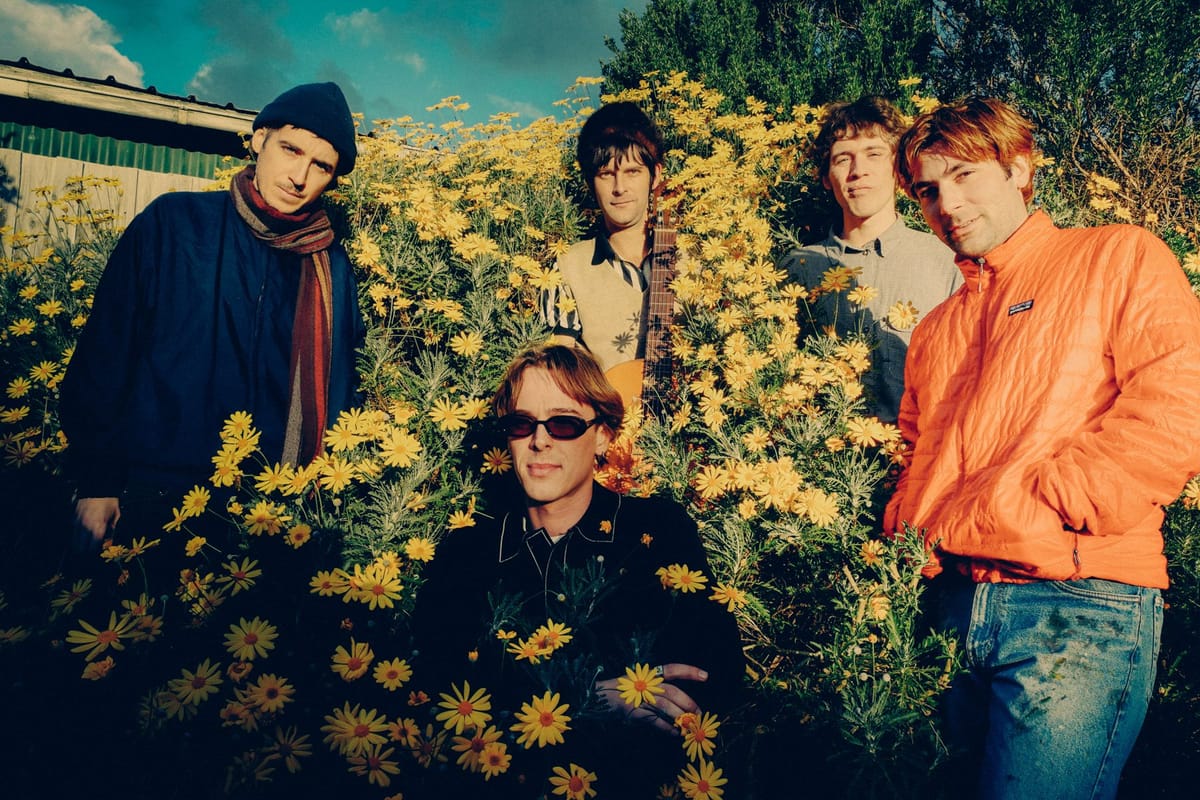
Also imperative: To manipulate the social conditions in which the takes were performed and nail the vibe during recording. “It was all “attitude towards life and esoteric stuff, natural law, how energy transfers, sounds, chemistry between people,” explains van Bakel, “trying to foster an environment together where we can make some magic, capture the phenomena of energy and soundwaves interacting with each other in the room. And that was definitely what we wanted it to sound like — pro-human.”
In many ways, “pro-human” captures the radical quintessence that Why Is The Colour Of The Sky? is fulsomely jazz-shuffling towards. For a record that recognises in its every breath and sinew the humbling, restorative and life-affirming power of collective creative endeavour, it’s also a work that resists an ever more technologically driven and isolating world that can feel ever more dehumanising in its quests for perfection. A theme directly addressed in Children of the Man, it’s a thread that runs across the entire record:
“I feel like a lot of human nature and tradition is worth preserving because we’ve probably evolved to be this way.”, van Bakel notes, “This album is all just about not losing your head and being over stimulated by the ‘goggle box;; the need for spirituality and nature; the need to be able to communicate and share ideas and adapt in a rapidly changing world without being judged and profiled. The preservation of human needs, so we don’t all get homogenised and isolated and poisoned to stupidity and obedience.”
And what better way is there to feel human than by laying down a dynamite groove, or nine?”













